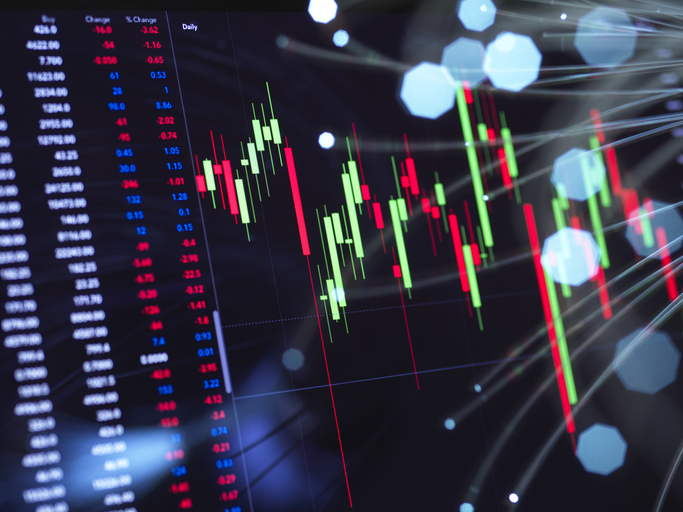Coronavirus Is Speeding the Fall of Oil
Oil prices and the energy industry were facing an eventual reckoning. COVID-19 is adjusting the timetable.


Profit and prosper with the best of Kiplinger's advice on investing, taxes, retirement, personal finance and much more. Delivered daily. Enter your email in the box and click Sign Me Up.
You are now subscribed
Your newsletter sign-up was successful
Want to add more newsletters?

Delivered daily
Kiplinger Today
Profit and prosper with the best of Kiplinger's advice on investing, taxes, retirement, personal finance and much more delivered daily. Smart money moves start here.

Sent five days a week
Kiplinger A Step Ahead
Get practical help to make better financial decisions in your everyday life, from spending to savings on top deals.

Delivered daily
Kiplinger Closing Bell
Get today's biggest financial and investing headlines delivered to your inbox every day the U.S. stock market is open.

Sent twice a week
Kiplinger Adviser Intel
Financial pros across the country share best practices and fresh tactics to preserve and grow your wealth.

Delivered weekly
Kiplinger Tax Tips
Trim your federal and state tax bills with practical tax-planning and tax-cutting strategies.

Sent twice a week
Kiplinger Retirement Tips
Your twice-a-week guide to planning and enjoying a financially secure and richly rewarding retirement

Sent bimonthly.
Kiplinger Adviser Angle
Insights for advisers, wealth managers and other financial professionals.

Sent twice a week
Kiplinger Investing Weekly
Your twice-a-week roundup of promising stocks, funds, companies and industries you should consider, ones you should avoid, and why.

Sent weekly for six weeks
Kiplinger Invest for Retirement
Your step-by-step six-part series on how to invest for retirement, from devising a successful strategy to exactly which investments to choose.
Before the decade started, I identified three main technology stories for the 2020s:
- The fall of oil
- The "machine internet"
- DNA as a programming language
The fall of oil might be underway, thanks to the COVID-19 coronavirus.
There is substantial disagreement among analysts over what the "fall of oil" might mean. Many think it's just short-term pain.
From just $107.88 $24.99 for Kiplinger Personal Finance
Become a smarter, better informed investor. Subscribe from just $107.88 $24.99, plus get up to 4 Special Issues

Sign up for Kiplinger’s Free Newsletters
Profit and prosper with the best of expert advice on investing, taxes, retirement, personal finance and more - straight to your e-mail.
Profit and prosper with the best of expert advice - straight to your e-mail.
That short-term pain is still plenty significant. Oil prices, which have already sustained deep declines so far in 2020, are about to get even worse. On Sunday, March 8, a couple days after OPEC and Russia couldn't reach an accord on product cuts to battle sinking oil prices tethered to coronavirus fears, Saudi Arabia announced it will discount oil prices to customers on three continents and might actually boost its own production – the potential start of a price war.
Even a massive rout like the current one in oil can, in theory, come and go within a matter of months. However, even if oil prices do recover in the short term, the long-term outlook for oil prices remains dire.
The Coronavirus Effect
Oil prices have fallen in 2020 largely on the back of the COVID-19 outbreak that is cutting worldwide demand for oil. Sarah Bauder, senior market analyst at SophisticatedInvestor.com, notes that oil prices have officially been in a bear market – a decline of more than 20% from a peak – for a couple weeks.
Projections for oil prices have understandably sunk into the ground.
Kiplinger's energy forecast, prior to Saudi Arabia's announcement, was for West Texas Intermediate (WTI) oil prices to trade in a "wide range" of $40 to $50 per barrel until fears over the virus ebb. Heading into the March 7-8 weekend, WTI traded for a little more than $41 per barrel – 35% less than the $63 it traded at in late December.
But the math became even uglier on Sunday, when the world's second-largest producer of oil said it would offer discounts on its oil and was mulling upping production. Saudi Arabia, which has some of the lowest production costs in the world, is effectively trying to squeeze out competitors in Russia, the U.S. and elsewhere, believing it can withstand lower prices longer than rival producers. That gauntlet toss sent WTI crashing by more than 20%, into the low $30s.
Investors already have been shedding oil stocks as fast as they can. Energy titan Exxon Mobil (XOM, $47.69) has lost a third of its value in 2020 and is trading at prices last seen in 2004. It now yields 7.3% – higher than at any point in more than 30 years, according to Ycharts data. Fellow integrated energy major Chevron (CVX, $95.32) is holding up better, sitting well above its 2014-15 energy-slump lows, but it's still mired in a 21% decline this year.
But the effect of oil's short-term collapse is hardly contained within the energy sector. It creates knock-on effects throughout the global economy.
"Price declines exacerbate the already sizable downturn in business investment," says Joe Brusuelas, chief economist at consultant RSM in London, and former chief economist for Bloomberg. Indeed, Dow futures plunged Sunday after Saudi Arabia announced its intentions.
The Longer Term
No matter what oil prices do for the next few months, the value of oil assets have a grim ultra-long-term outlook, for a couple of reasons.
For one, supplies keep increasing while demand keeps falling. Technology is letting oilmen find vast new pools of crude, such as Exxon's strike in Guyana, or a Namibia strike that junior oil-and-gas exploration-and-production company ReconAfrica is working on.
Indeed, it is technology that enabled oilmen to recover more from existing pools, fracturing underground shale so that oil and gas will flow. America's fracking boom has effectively doubled the nation's oil-and-gas output in a decade, creating a global oil glut.
Also, other energy technologies are in development that are speeding the replacement of fossil fuels with renewables.
Citi Private Bank CIO David Bailin told CNBC earlier this year that electricity from solar energy has become cheaper to produce than fossil fuels. He calls it "the ultimate cap" on fossil-fuel prices.
Wind is getting cheaper too, and it's being put to use. A 2019 report from consulting firm Rystad Energy predicts that wind will produce more power than Texas's coal-fired plants this year.
The future might be playing out in Canada, where mining company Teck Resources recently spiked a plan for a massive $15.7 billion tar-sands mine. The project was mired by a host of issues. Financially, poor oil prices were a weight on the project's viability. But the project was also the subject of outcry from environmental groups – this in a country that Justin Trudeau has promised to steer toward net-zero greenhouse gas emissions within 30 years.
What to Watch for Now
The magic number to watch at any time is $50 per barrel.
Every energy company's breakeven line – the price that oil has to sell for so that their operations at least pay for themselves – is different. But generally speaking, if producers suffer oil prices below $50 per barrel for an extended period, there will have to be a broader reckoning.
That's what makes demand fears on the coronavirus outbreak so troubling, and what makes Saudi Arabia's move to discount oil so threatening.
However, cracks were already showing before the coronavirus was on any investor's mind. Chevron, for instance, wrote down the value of both an oil project and natural gas assets in late 2019. The Wall Street Journal highlights the writing on the wall:
"The sobering reappraisal by one of the world's largest and best-performing oil companies is likely to ripple through the oil-and-gas industry, forcing others to publicly reassess the value of their holdings in the face of a global supply glut and growing investor concerns about the long-term future of fossil fuels."
Chevron, seeking to assure investors somewhat, said in early March that it plans to distribute as much as $80 billion in dividend and share buybacks. "Our advantaged portfolio and capital efficiency enable us to grow cash flows and increase returns without relying on rising oil prices," CEO Mike Wirth said in a statement. The company says cost cuts and improving margins will do the heavy lifting. The implication, of course, is that Chevron doesn't expect to be bailed out by substantially higher oil prices.
This is just the story at Chevron, which is much better financially situated to absorb a shock in energy prices than its smaller competitors. And this story is rapidly evolving – oil prices in the $30s are sure to panic investors across the energy sector.
But regardless, the world's fight to address climate change had already turned oil prices into a ticking time bomb that, at some point, needed to explode or be disarmed. The coronavirus outbreak is merely speeding up the clock.
Profit and prosper with the best of Kiplinger's advice on investing, taxes, retirement, personal finance and much more. Delivered daily. Enter your email in the box and click Sign Me Up.

-
 5 Vince Lombardi Quotes Retirees Should Live By
5 Vince Lombardi Quotes Retirees Should Live ByThe iconic football coach's philosophy can help retirees win at the game of life.
-
 The $200,000 Olympic 'Pension' is a Retirement Game-Changer for Team USA
The $200,000 Olympic 'Pension' is a Retirement Game-Changer for Team USAThe donation by financier Ross Stevens is meant to be a "retirement program" for Team USA Olympic and Paralympic athletes.
-
 10 Cheapest Places to Live in Colorado
10 Cheapest Places to Live in ColoradoProperty Tax Looking for a cozy cabin near the slopes? These Colorado counties combine reasonable house prices with the state's lowest property tax bills.
-
 If You'd Put $1,000 Into AMD Stock 20 Years Ago, Here's What You'd Have Today
If You'd Put $1,000 Into AMD Stock 20 Years Ago, Here's What You'd Have TodayAdvanced Micro Devices stock is soaring thanks to AI, but as a buy-and-hold bet, it's been a market laggard.
-
 If You'd Put $1,000 Into UPS Stock 20 Years Ago, Here's What You'd Have Today
If You'd Put $1,000 Into UPS Stock 20 Years Ago, Here's What You'd Have TodayUnited Parcel Service stock has been a massive long-term laggard.
-
 Dow, S&P 500 Rise to New Closing Highs: Stock Market Today
Dow, S&P 500 Rise to New Closing Highs: Stock Market TodayWill President Donald Trump match his Monroe Doctrine gambit with a new Marshall Plan for Venezuela?
-
 'Donroe Doctrine' Pumps Dow 594 Points: Stock Market Today
'Donroe Doctrine' Pumps Dow 594 Points: Stock Market TodayThe S&P 500 rallied but failed to turn the "Santa Claus Rally" indicator positive for 2026.
-
 If You'd Put $1,000 Into Lowe's Stock 20 Years Ago, Here's What You'd Have Today
If You'd Put $1,000 Into Lowe's Stock 20 Years Ago, Here's What You'd Have TodayLowe's stock has delivered disappointing returns recently, but it's been a great holding for truly patient investors.
-
 If You'd Put $1,000 Into 3M Stock 20 Years Ago, Here's What You'd Have Today
If You'd Put $1,000 Into 3M Stock 20 Years Ago, Here's What You'd Have TodayMMM stock has been a pit of despair for truly long-term shareholders.
-
 Stocks Chop as the Unemployment Rate Jumps: Stock Market Today
Stocks Chop as the Unemployment Rate Jumps: Stock Market TodayNovember job growth was stronger than expected, but sharp losses in October and a rising unemployment rate are worrying market participants.
-
 If You'd Put $1,000 Into Coca-Cola Stock 20 Years Ago, Here's What You'd Have Today
If You'd Put $1,000 Into Coca-Cola Stock 20 Years Ago, Here's What You'd Have TodayEven with its reliable dividend growth and generous stock buybacks, Coca-Cola has underperformed the broad market in the long term.